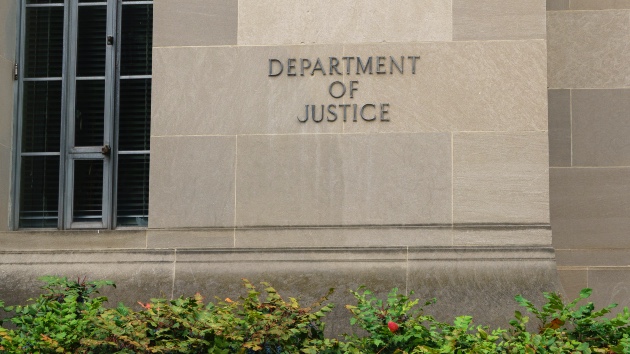Houthi militants strike US-owned commercial ship with anti-ship ballistic missile
Written by ABC Audio. All rights reserved. on January 15, 2024
(NEW YORK) — Houthi militants on Monday struck a U.S.-owned and operated container ship with an anti-ship ballistic missile, according to U.S. Central Command.
“The ship has reported no injuries or significant damage and is continuing its journey,” a statement from the command read.
The vessel was struck around 4 p.m. local time and was identified as the M/V Gibraltar Eagle. The missile was fired from Houthi-controlled areas of Yemen, CENTCOM said.
A spokesperson for the Houthis said in a statement that it “carried out a military operation targeting an American ship in the Gulf of Aden, with a number of appropriate naval missiles, and the hit was accurate and direct.”
After a volley of U.S. strikes intended to diminish the Houthis’ capabilities, the Yemeni militia group mounted several retaliatory attacks — targeting a U.S. destroyer on Sunday and striking an American-owned commercial ship in the Gulf of Aden on Monday — further escalating tensions in critical Middle Eastern waterways.
The United States Central Command (CENTCOM) said that the Gibraltar Eagle, a bulk carrier sailing under the Marshall Islands flag and owned by a Connecticut-based company, was struck by an anti-ship ballistic missile launched from Houthi-controlled areas of Yemen, but that the ship “has reported no injuries or significant damage and is continuing its journey.”
The United Kingdom Maritime Trade Operation said the ship’s captain reported that the vessel was “hit from above by a missile” on its port side.
The Gibraltar Eagle appears to be the first American-owned ship to be hit by a Houthi missile during the Iranian-backed militia’s monthslong assault against maritime traffic in the waters surrounding Yemen.
“It was inevitable that one of these Iranian-provided missiles would eventually find its way to a target,” said Mick Mulroy, a former deputy assistant secretary of defense for the Middle East and an ABC News analyst.
“This is a blatant act of terrorism,” he continued. “They are using violence against a civilian target to advance their political aims.”
On Sunday, CENTCOM said an anti-ship cruise missile was fired from Houthi controlled areas of Yemen toward the USS Laboon, a Navy destroyer patrolling the Southern Red Sea, but that a U.S. fighter aircraft was able to shoot down the missile.
In the aftermath of sweeping airstrikes on 28 Houthi sites by the U.S. and the U.K. on Thursday, administration officials and military leaders said they expected the militants’ capabilities to launch attacks were diminished—but that they anticipated the group would still be able to mount a response.
“I know we have degraded capability,” Gen. Douglas Sims II, the director of operations of the Joint Staff, said.
The U.S. carried out a second strike in Yemen on Friday, which the Pentagon described as a “follow-on action” mean to eliminate a specific military target. But so far, these measures don’t appear to have had a deterrent effect.
Mulroy says more needs to be done.
“The U.S. should look to take out as many targets as they can identify on the Yemen coast of the Sea of Aden, as they did on the Red Sea coast,” he said. “There should be no radar, launch, or storage sites left.”
American officials initially assessed that the Houthis were not aiming at U.S. holdings—a major reason the Biden administration was hesitant launch a military response.
But the tide shifted in early January when the Houthis launched a barrage of drones and missiles in response to the U.S. sinking of three Houthi vessels while responding to a distress call from a merchant ship under attack from the rebels.
Although no U.S. vessels were hit in the onslaught, which CENTCOM described as a “complex attack,” a Houthi spokesperson claimed during a televised address that the group had “targeted an American ship that was providing support to the Zionist entity.”
Despite international condemnation, the Houthis say they will continue their attacks until Israel ends its siege on Gaza.
A spokesperson for the group said Monday that they “consider all American and British ships and warships participating in the aggression against our country as hostile targets within the target bank of our forces.”
However, many ships struck by the Houthis bear little or no connection to Israel, according to the Israeli government and international registries tracking commercial shipping vessels.
Copyright © 2024, ABC Audio. All rights reserved.





